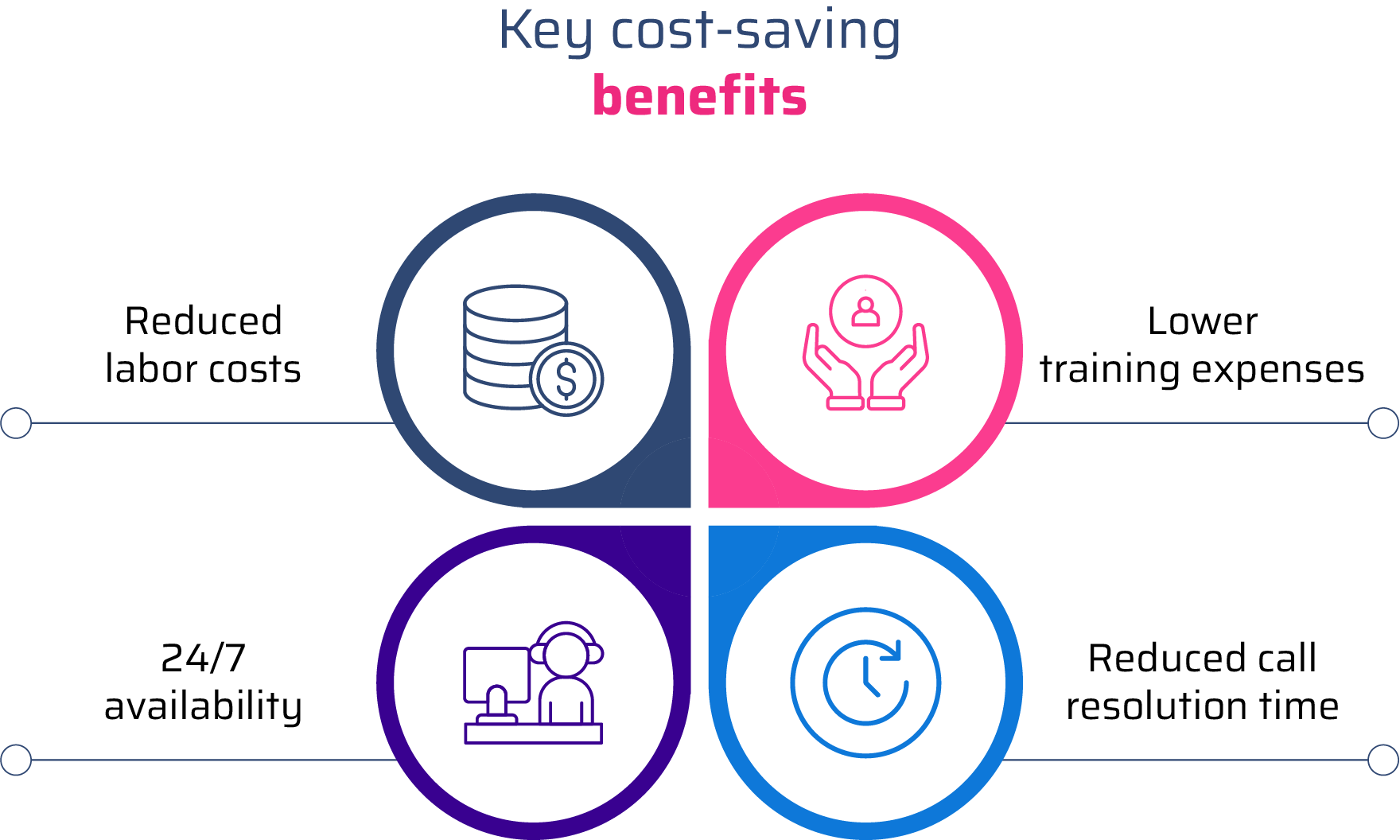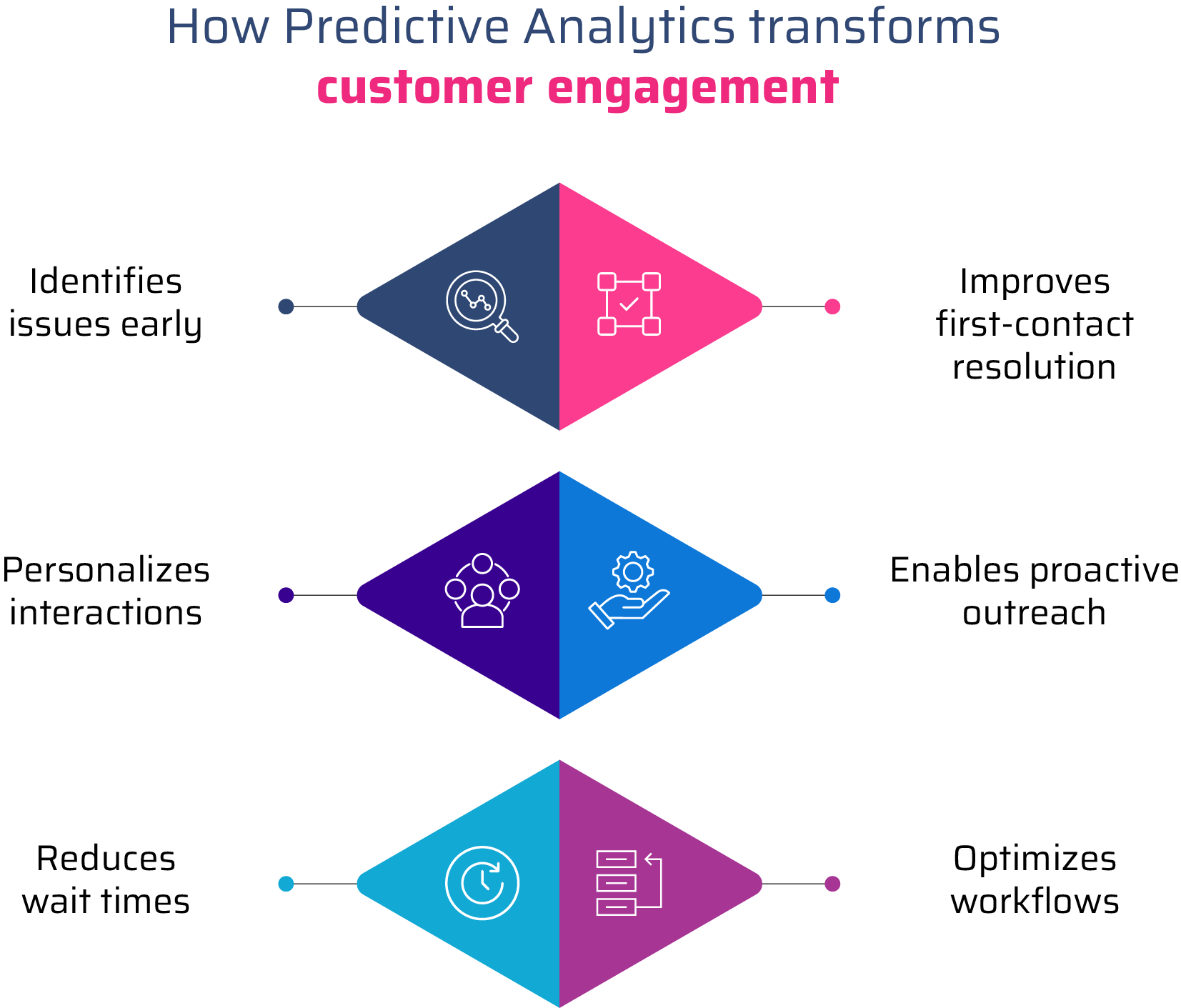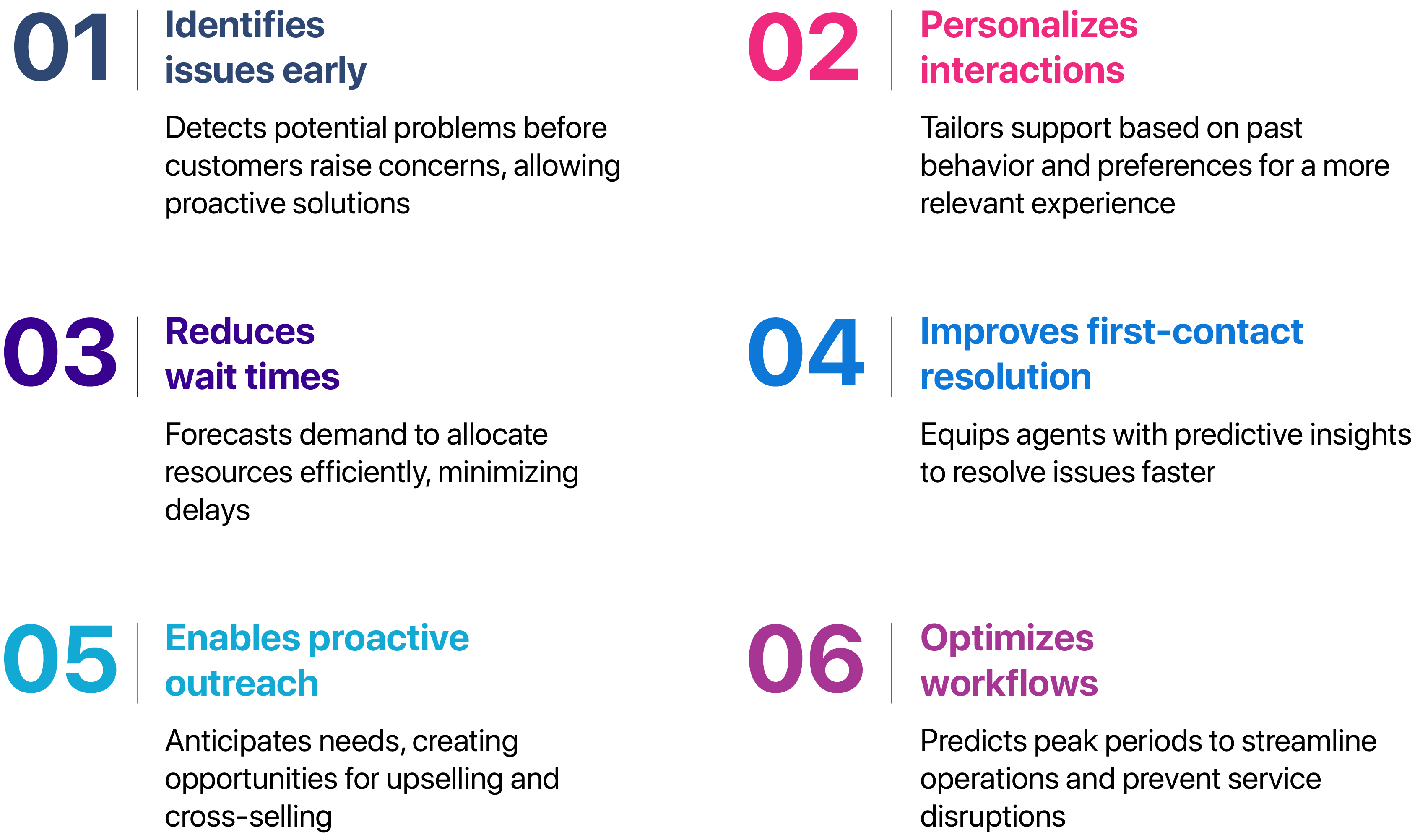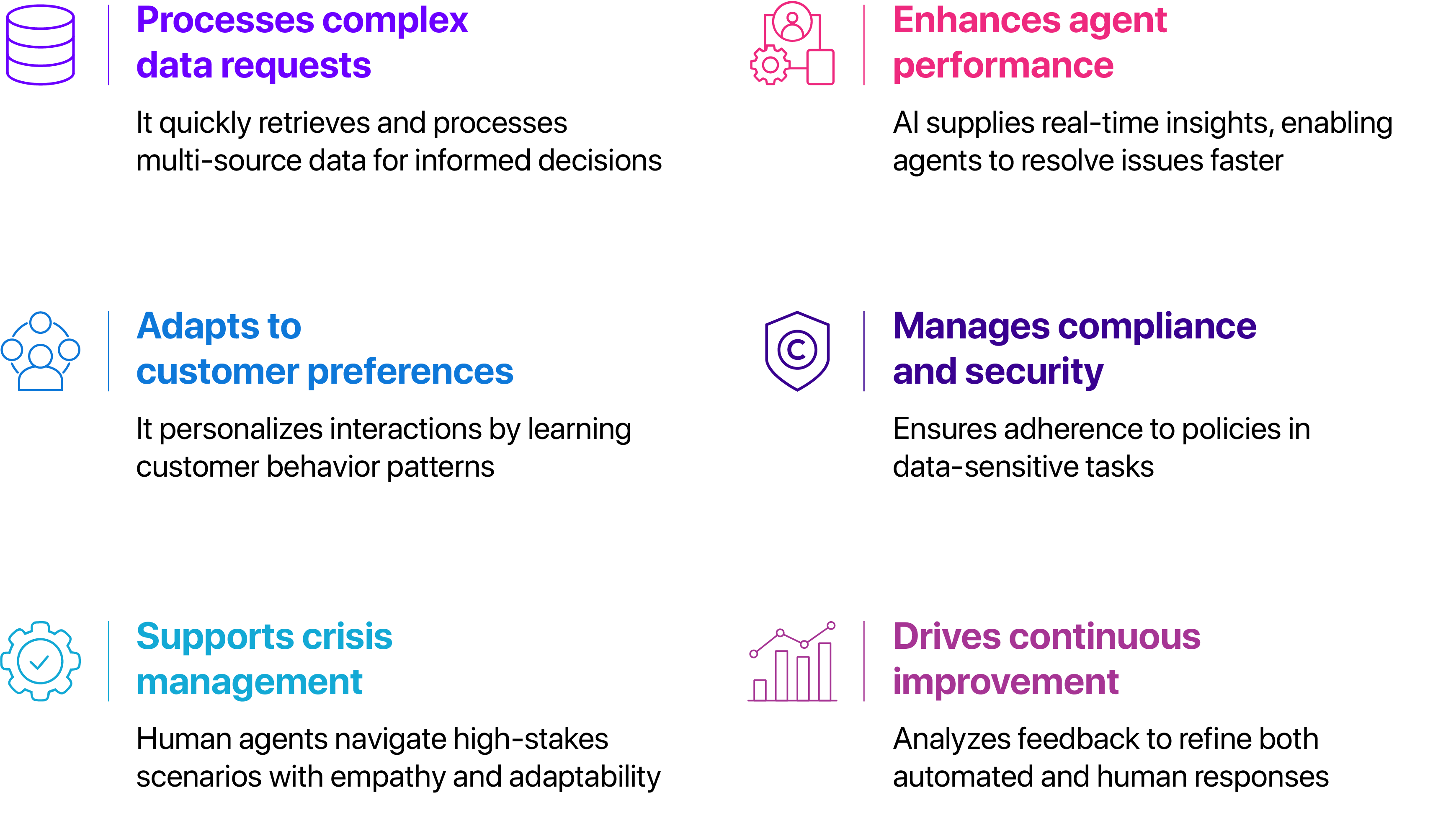
Listen to this blog
Throughout history, advancements in communication have profoundly reshaped every facet of human interaction.
While early forms of communication, such as messengers and written correspondence, often necessitated in-person encounters for two-way exchanges, the invention of the telephone and the internet revolutionized communication, enabling more real-time conversations over long distances. Modern technologies further enhance these interactions by facilitating easier feedback collection, deeper emotional understanding of customers, and more engaging experiences, regardless of distance or time zones. However, this increased access to information also presents challenges: an influx of noise and information overload, heightened customer expectations, and the ever-growing demand for faster resolutions.
With such demands comes a need for adapting to the next frontier in customer engagement. The integration of Artificial Intelligence (AI) is revolutionizing contact centers, significantly enhancing customer assistance and service delivery efficiency. Business Insider reports that AI-powered conversational tools have advanced significantly, closely mirroring the interactions of human customer support agents. A Zipdo report projects that AI chatbots could generate substantial cost savings for the call center industry, with potential annual savings estimated between $6 and $8 billion. Furthermore, a recent survey suggests that by 2025, AI is poised to manage a significant portion of customer interactions, with projections reaching 95%. This highlights the increasing prominence of automation in customer engagement strategies.
Automating routine inquiries with AI chatbots
Contact centers handle millions of routine calls daily, often involving simple requests such as password resets, account details, and bill payments. These repetitive tasks consume time and resources that could be directed toward resolving more complex customer issues. Automating these processes with AI chatbots has become a necessity. AI chatbots deliver prompt and accurate responses 24/7, reducing wait times and improving service efficiency. This allows customers to access immediate support while agents focus on resolving more specialized and complex inquiries.
Operational efficiency and cost reduction
Automating calls with AI-powered systems significantly reduces operational expenses by handling high volumes of routine inquiries without the need for additional staffing. This shift allows businesses to allocate resources more efficiently, minimize human errors, and maintain consistent service quality. By automating repetitive tasks, companies can cut labor costs while improving overall customer satisfaction.


Predictive analytics is transforming contact centers by enabling businesses to anticipate customer needs and deliver proactive solutions. By analyzing historical data, customer behavior, and interaction patterns, AI-driven models can forecast potential issues and personalize support. This proactive approach not only enhances customer satisfaction but also reduces churn by addressing concerns before they escalate. With predictive insights, contact centers can move beyond reactive service, creating seamless and efficient customer experiences.


Conversational AI vs. Human agents: Striking the right balance
Conversational AI has evolved beyond basic automation, now capable of understanding context, intent, and even subtle language cues through natural language processing (NLP). This advancement allows AI to manage complex workflows such as multi-step troubleshooting, account verifications, and real-time data retrieval across multiple systems. Yet, human agents excel in situations that demand adaptability, emotional intelligence, and critical thinking skills that machines cannot replicate. For example, resolving emotionally charged disputes or navigating ambiguous scenarios often requires a human's ability to interpret tone, empathize, and make judgment calls. The most forward-thinking contact centers strategically integrate AI to handle data-driven interactions and empower agents with insights, enabling them to focus on relationship-building and creative problem-solving.

Conclusion
The future of customer service lies in a harmonious blend of human ingenuity and artificial intelligence. AI excels at processing information and handling routine tasks, while humans bring empathy, humanity, creativity, and the ability to understand complex emotions. A seamless integration of these strengths can help businesses deliver truly exceptional customer experiences.
In the ever-evolving global landscape, this synergistic approach empowers contact centers to be more efficient, more responsive, and more human than ever before, fostering lasting customer relationships and driving unprecedented long-term success for the business.




